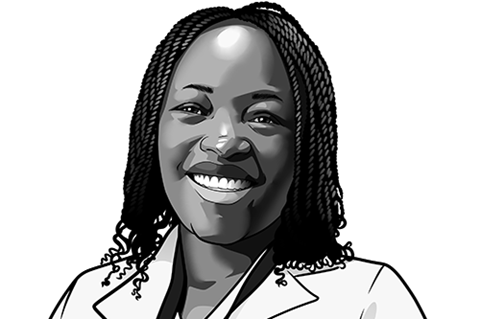One year into our first junior editor training programme with Letters in Applied Microbiology, Racheal Oluwayemisi Fashogbon reveals how signing up has helped to transform her career.

Last year, Applied Microbiology International appointed 14 junior editors to its flagship journal Letters in Applied Microbiology (LAM) - selected from more than 100 applicants by the Editor-in-Chief, Dr Marcela Hernández.
Letters in Applied Microbiology has a focus on early career researchers to support and develop the next generation of applied microbiologists.
The junior editors, early careers researchers within six years of completing a PhD, work with senior editors as mentors for two years to learn how to handle papers through all stages of the peer review process, while upholding high ethical standards and striving to give all authors the best experience in their interactions with the journal.
Tell me about your background and research.
I am a researcher who specialises in Applied Microbiology and Biotechnology.
My doctoral research was on the ’Biological evaluation of exopolysaccharides (EPS) produced by Lactic Acid Bacteria (LAB) isolated from fermented foods and its potential application in sourdough production’.
I am currently serving as a lecturer in the Department of Microbiology and Biotechnology at Ajayi Crowther University Oyo, Nigeria. My ongoing research includes the characterization and in-vitro antibacterial potential of EPS from LAB isolated from fermented foods, demonstrating a continued commitment to exploring the beneficial properties of these microorganisms.
I have a broad spectrum of research interests, including Polymer and Polymerisation, Industrial Microbiology, Fermentation, Food Safety, Prebiotics and Probiotics, Nanoparticles, and Biotechnology.
What attracted you to the role of junior editor?
My passion for scientific research naturally led me to explore the world of academic publishing. My journey as a Junior Editor with Letters in Applied Microbiology (LAM) has been a transformative experience, offering unique insights into the publication process and the broader scientific community.
What did you learn and do in the role?
Attracted by the opportunity to develop editorial skills, work with diverse research articles, and build professional networks, I have embraced the role of Junior Editor with enthusiasm. This position has provided a platform for growth and career advancement, allowing me to gain a deeper understanding of the publishing process from the inside.
LAM has honed my ability to meticulously review manuscripts, ensure research soundness, and make informed recommendations. Familiarity with publishing software, style guides, and the importance of meeting deadlines has further enhanced my professional skill set.
What surprised you most about the experience?
One of the most significant experiences for me was the opportunity to attend the ECS Research Symposium 2024 in Bristol. This event allowed me to meet and interact with the editorial team of Letters in Applied Microbiology, including the Editor-In-Chief, my mentors and the publishing team members. This networking opportunity has been invaluable for my professional development.
Additionally, the role has provided unexpected platforms for showcasing my research, including features in The Microbiologist (AMI) and the opportunity to contribute a mini-review in Letters in Applied Microbiology (under review). These experiences have significantly boosted my visibility within the scientific community.
What is the best way to make the most of the experience?
The Junior Editor role has opened up new avenues for my career advancement. It has enhanced my ability to disseminate knowledge and ideas to colleagues and students, creating a ripple effect of scientific communication. Moreover, I am actively promoting this opportunity to fellow microbiologists in my home country, potentially expanding the diversity of voices in scientific publishing. The knowledge I have gained as a Junior Editor will also equip me to serve as editor for other publishing organizations and journals thus, making me more relevant and up-to-date in my career.
Perhaps most notably, the experience as a Junior Editor played a crucial role in my selection as a trainee for the Industrial Synthetic Biotechnology program at the Tianjin Institute of Industrial Biotechnology, Chinese Academy of Sciences, in November 2023. This international opportunity is another example of the value of editorial experience in advancing one’s scientific career.
What would you say to someone who is considering applying?
Drawing from my positive experience, I enthusiastically encourage others to consider applying for Junior Editor positions. This platform emphasises the role’s potential for career advancement and increasing one’s relevance in their chosen field. For those considering this path, I advise you to embrace the opportunity to learn, network, and contribute to the scientific community.
AMI will be advertising for the next cohort of Junior Editors in 2025. Sign up to AMI’s publishing mailing list for regular updates.







No comments yet